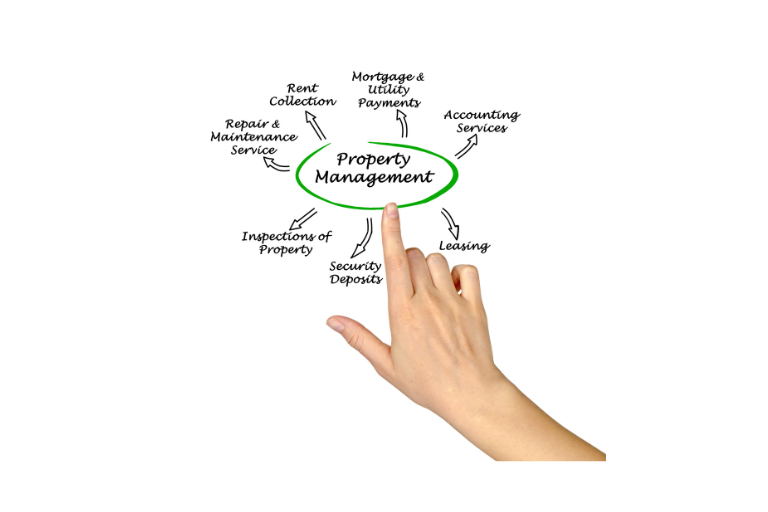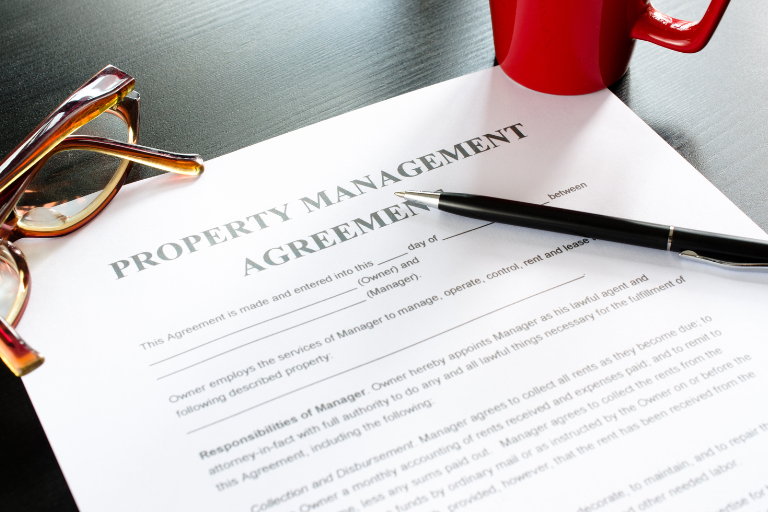Estimated reading time: 8 minutes
What is the big fuss over property management anyway? After all, it is just taking care of rental properties, right? Well, not quite...
Investing in rental properties in Rhode Island can be a very profitable business, however, real estate investors need to consider many factors when deciding if hiring a property management company is the right choice for them. On one hand, self-management can provide property investors with more control and flexibility but requires an immense amount of time. Alternatively, property management companies can alleviate the burden of managing rentals; yet come with additional costs. So how do you know when to self-manage or hire a pro? In this article, we will discuss the pros and cons of self-management vs. hiring a property management company in Rhode Island.

What are my responsibilities as a self-managing landlord?
There are several things you need to keep track of as a self-managing landlord:
Property maintenance
Properties must be properly maintained and inspected on a regular basis. Property repairs should be done quickly and with minimum inconvenience for the residents. Any unresolved issues can lead to costly rent reimbursement to the resident or worse. In other words, stay on top of maintenance issues.
Resident communication
Above all, residents are your assets. It is important to build a good relationship with them and maintain regular communication. Secondly, responding to routine requests promptly and handling any issues in a timely manner is key. Chronic, unresolved maintenance requests are one of the key reasons good residents don’t renew their leases.
Financial tracking
Keep track of the financial status of your properties regularly. That is to say, you must collect your rent on time and pay bills in a timely manner. A mismanaged bookkeeping system can lead to financial disaster.
Finding new residents
Most importantly, you need to find the right residents for your properties. This means advertising, showing the property, reviewing applications, putting a professional lease in place, and doing background plus credit checks.
Eviction notices
All the rules, regulations, and state laws around evictions must be followed to a T. One misplaced signature or a wrong piece of paperwork could cost you time and money. Any delays in the process will impact your profitability with a loss of rental income.
The Pros of Self-Management
Saving on fees
The savings might not always be as big as you think. Most property management companies collect a standard fee which is usually between 8% and 12% of the rent collected. With that said, adding the cost of advertising the properties and processing rental applications, the amount you might save is minimal. Most importantly, the biggest expense to consider is your time. From handling maintenance calls to dealing with legal disputes, it can be very time-consuming. Is your time worth money? To sum it up, time is money. Managing your rental properties can be a wise decision if you have time and expertise.
A sense of pride
Many landlords have a sense of pride in managing their own rental properties. Doing it yourself can be a rewarding experience. With that said, it can come at a price, in addition to being stressful and time-consuming.
The Cons of Self-Management
In this paragraph, we'll discuss a few reasons why mismanaging your property can come at a hefty price.
Monetary loss
Firstly, landlords who decide to manage their property on their own are often at risk of losing money due to their lack of knowledge and experience in the industry. If tenants are not paying rent on time, landlords have to take it upon themselves to pursue legal action which can incur a lot of expenses.
Furthermore, property owners who manage properties themselves must also bear the responsibility of carrying out maintenance and repairs. Without proper access to vendors and contractors, it can become a bigger issue. Consequently, poorly done repairs can lead to further damage and cost property owners a lot more in the long run.
Lastly, any delays with unit turnovers can lead to a loss of precious rental income. In short, empty units are your enemies.
Emotions
It is difficult for most landlords to remain emotionally uninvolved when it comes to property management. In other words, some property owners may find it hard to not take things personally when dealing with their tenants or the property itself.
For example, they can allow an applicant with poor credit and insufficient income to move in. Why? Most landlords become emotionally involved in the decision-making process.
Legal
Knowing the law is an absolute must when self-managing rental properties.
Every state has its own tenant-landlord laws and property management regulations, therefore it is important to stay up-to-date. If you mishandle any property issues and do not comply with the laws, you can end up with costly legal repercussions.
For example, if one of the residents suddenly stopped paying rent. What's next? Are you well-versed in the eviction process? Do you understand the laws regarding notices and demand letters? Any mistake can lead to a dismissal in court and having to start the entire process all over again. In conclusion, it is important to familiarize yourself and adhere to the statewide landlord-tenant laws.
Examples of such laws include Fair Housing Laws, The Tenant-Landlord Handbook, Security Deposit Rules, Warranty of Habitability, and the Fair Credit Reporting Act.

The Pros of Property Management
Property management companies are an incredibly helpful resource for rental property owners. They can provide property owners with the expertise, resources, and relationships to help make the property more profitable. In this paragraph, we are listing a few examples:
A Property manager handles everything from A to Z
One of the biggest benefits of hiring a property manager is that they take care of everything from A to Z. From resident placement, screening process, and lease enforcement to property maintenance, they handle everything. In addition, they have the knowledge to deal with any situation that might come your way as a real estate investor. Property management equals problem-solving. From resident issues to city ordinances, a property management company will have the people, and procedures to solve these challenges.
Maintenance costs
A good property management company has access to a network of professional maintenance services 24/7. By leveraging their strong partnerships with vendors and contractors, repairs are completed with speed - often at a better cost. Furthermore, some companies may have their maintenance team in-house to better control quality and cost. That's a bonus! Because it eliminates the process of “outsourcing” labor every time there is an issue.
Resident communication
Property management companies have an obligation to ensure that residents abide by all the rules and regulations in the rental properties. Property managers communicate effectively with all residents using email notifications, SMS, newsletters, or even direct mailers. It creates a safe and comfortable environment for all residents, which is one of the primary goals of property managers. In addition, they also act as mediators with residents. If there are any discrepancies (late rent payments, general maintenance requests, and more), they handle all the communication. Last but not least - they will take emergency maintenance calls that come at 03.00 am.
Evictions
It is almost inevitable. As a landlord, you will face evicting a resident. The procedure is overwhelming and very stressful. Meanwhile, most property management companies have a lawyer on hand and a team to handle the case from start to finish. This includes preparing and going to court on your behalf for an eviction.
The Cons of Property Management
Matching Your Expectations
Not all property management companies are created equal. That is to say that some property managers may not perform up to your standards. Make sure you do your due diligence by reading reviews online and researching the company you are looking to hire. In addition, knowing what questions to ask when hiring a property manager is key. At the end of the day, it must be a good fit for both parties.
Property Management Fees
Property management fees vary between 5%–10% of the total rental income collected. Additionally, they may charge extra fees and costs for maintenance and other services. Certainly, this can cut into the potential profit that could be on hand for you, however, remember that your time also equals money.
Furthermore, the resident placement fee should also be taken into consideration. It often equals one month’s rent. However, finding new residents can be difficult. Factor all of these expenses into your budgeting when looking at the bottom-line profit.
Conclusion
So what is the best choice? - It all depends on your individual goals.
Self-management provides more control and flexibility, yet it requires an immense amount of time. So, if you have the time and patience, self-managing rental properties might be a great choice.
On the other hand, hiring a property management company can alleviate the burden of managing rentals; yet come with additional costs. If your goal is to focus on other matters, like growing your portfolio, then partnering with a property management company can be a wise choice. Because they can help you make informed decisions and provide guidance to help you acquire more rental properties.


